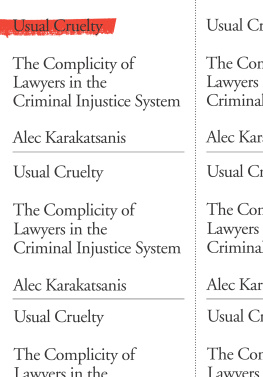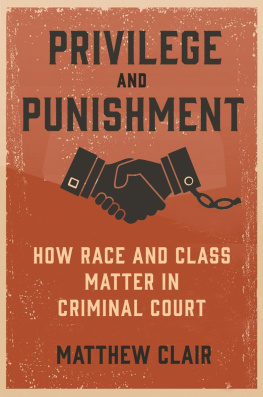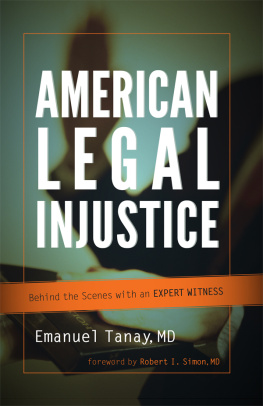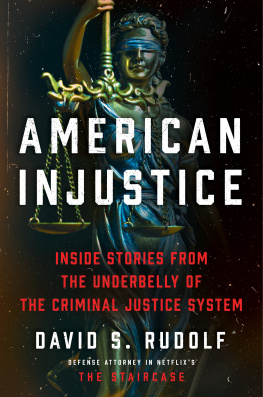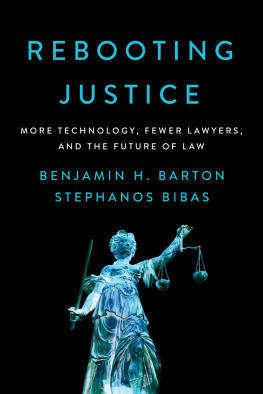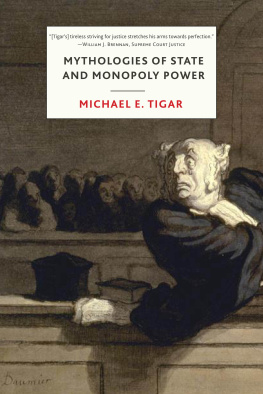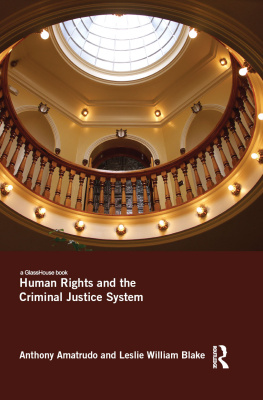
USUAL CRUELTY
THE COMPLICITY OF LAWYERS IN THE CRIMINAL INJUSTICE SYSTEM
ALEC KARAKATSANIS

2019 by Alec Karakatsanis
All rights reserved.
No part of this book may be reproduced, in any form, without written permission from the publisher.
Requests for permission to reproduce selections from this book should be made through our website: https://thenewpress.com/contact.
The Punishment Bureaucracy first appeared in the Yale Law Journal Forum in 2019. The Human Lawyer originally appeared in the New York University Review of Law and Social Change in 2010. Policing, Mass Imprisonment, and the Failure of American Lawyers originally appeared in the Harvard Law Review Forum in 2015. The essays have been largely reproduced here in their original form, with minor alterations for flow and consistency.
Published in the United States by The New Press, New York, 2019
Distributed by Two Rivers Distribution
ISBN 978-1-62097-527-5 (hc)
ISBN 978-1-62097-528-2 (ebook)
CIP data is available.
The New Press publishes books that promote and enrich public discussion and understanding of the issues vital to our democracy and to a more equitable world. These books are made possible by the enthusiasm of our readers; the support of a committed group of donors, large and small; the collaboration of our many partners in the independent media and the not-for-profit sector; booksellers, who often hand-sell New Press books; librarians; and above all by our authors.
www.thenewpress.com
Book design and composition by Bookbright Media
This book was set in Janson Text and Redaction
Printed in the United States of America
10 9 8 7 6 5 4 3 2 1
For Tonya, Christy, Paula, and Cindy
We say your names with every breath
CONTENTS
INTRODUCTION
WHEN I WAS A NEW LAWYER ALMOST TEN YEARS AGO, I WAS AT the jail in Montgomery, Alabama, one night with a client to prepare for court the next morning. As we discussed what would happen in his case, one of us made a joke, and we both laughed for a few seconds. Then, under his breath, he said, I dont think anyone has smiled at me in a couple weeks.
I have been thinking a lot recently about what his words say about our society.
In the six years before my organization filed a constitutional civil rights lawsuit challenging the money bail system in Harris County, Texas, fifty-five human beings died in the local jail in downtown Houston because they were too poor to buy their release before trial. The American punishment system inflicts unspeakable cruelty every day, both in ways that make it into newspapers and viral videos and in ways that are only whispered about in jail cells late at night.
The essays in this book reflect on that everyday brutality. I wrote the three essays at different times in my career, and theyre presented here with the most recent first. I wrote The Human Lawyer during my final year in law school and my first few months working in the legal system. At that time, I was particularly interested in legal education and how the culture of elite law schools produces professionals who tolerate a legal system that is profoundly unjust. I wrote Policing, Mass Imprisonment, and the Failure of American Lawyers when I transitioned to civil rights work after several years as a public defender in Alabama and Washington, DC, representing people accused of crimes who could not afford an attorney. By that time, after watching for years the senseless devastation of my clients and their families, I was focused on the moral and intellectual failures that led the American legal system to cage human beings at rates unprecedented in the modern recorded history of the world, without any evidence that it did any good. I examined the role of lawyers in crafting the doctrines that accomplish that transfer of bodies and explained how lawyers further this system each day by making choices about who they will represent. I wrote the most recent piece, The Punishment Bureaucracy, in the months preceding the publication of this book, after five years of bringing civil rights cases across the country that are challenging widespread injustices in the punishment system. Writing that essay, I was surrounded by a new zeitgeist in the legal profession, and in our society more broadly, to reform the criminal system. But much of the criminal justice reform movement is superficial and deceptive. And it is therefore dangerous. It is designed to quell calls for genuine change while preserving the architecture of mass human caging. The essay talks about the nature and scope of the problem, because understanding why the punishment bureaucracy exists and who it benefits is vital to dismantling it.
The three essays are bound together by common threads. First, I have long been interested in the chasm between how the law is written and how the law is lived. An enduring theme of my short career representing directly impacted people is the difference between how we advertise the law with beautiful inscriptions on our public monuments or lofty words in judicial opinions taught in law schools, and how we use the law to crush the bodies and minds of poor people and people of color in our streets, our prisons, and our courtrooms.
One afternoon, not long ago, I was observing a local courtroom in New Orleans, Louisiana. A black man was wearing an orange jumpsuit. He was fully restrained in metal chains as the court heard his case. He stood in between eight or nine other meneight or nine other black bodies wearing eight or nine other orange jumpsuits bound in eight or nine other sets of chains. I thought of James Baldwins letter to Angela Davis as she languished in a jail cell forty-eight years ago. Dear Sister, he began. One might have hoped that, by this hour, the very sight of chains on black flesh, or the very sight of chains, would be so intolerable a sight for the American people, and so unbearable a memory, that they would themselves spontaneously rise up and strike off the manacles. But, no, they appear to glory in their chains; now, more than ever, they appear to measure their safety in chains and corpses.
The question before the judge in New Orleans that afternoon was whether the man would be released back to his family before his trial. Because the man was very poor, if the court chose to require him to pay money for his release, he would likely be stuck in a jail cell until his case finished. If the judge released him with nonfinancial conditions of release, then the man could go back to his children, his spouse, his friends, his medical careto all of the things, large and small, that give everyday life meaning. Because court cases can take a long time, this decision is a vital one. I had recently come across another man, in a different state, who had spent three years in jail on a drug possession charge because he could not pay $500 for his release while he waited for the state to run lab tests on the small amount of alleged drugs that led to his arrest. This is a pervasive problem, because almost half of American households cannot come up with $400 in an emergency.
In a hearing that lasted just a few seconds, the New Orleans judge required the man to pay $20,000 to be released from jail. Because the man could not pay, he would be locked inside the notorious New Orleans jail, which is under a federal consent decree due to the disgusting things that have been done for many years to the human beings who languish there. The court called the next case, and the man sat down. The man next to him stood up.
Next page
